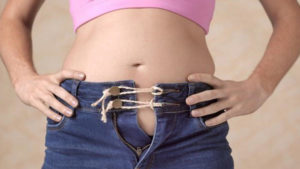Healthy Eating Vows You Can Keep, From Dr Michael Mosley

New Year’s resolutions often revolve around following a healthier diet. But how do we actually make this work in the real world? And what can we do to make sure we don’t reach for the biscuit tin on day 2 of the New Year?
To help you towards a healthier diet in the New Year, Dr Michael Mosley has listed 5 easy resolutions which you will be able to keep. His new eating plan The Fast 800 is based on a Mediterranean-style diet, full of protein, healthy fats and fresh, real food.
Resolution 1 – try a new recipe each week
Our minds hold out against constraint, but for the same reason, they love novelty. So, this year, pick out one new Mediterranean-style recipe to try each week.
As your taste buds adjust, you’ll be amazed at how much better fresh food tastes compared to junk. You will also find that you quickly build up your recipe repertoire and have a whole range of healthy, delicious recipes to follow whenever you need.
We will be adding new Mediterranean-style recipes on the Fast800 website on a regular basis, so feel free to try these out.
Remember: it’s much easier to follow a healthier diet when the food tastes great and you aren’t eating the same thing over and over again!
Resolution 2 – eat more soup
We’ve all been told to drink more fluids. Not many of us, though, have been told that eating soup actually helps you to lose weight.
A number of experiments have shown that people who start a meal with a low-calorie soup course actually go on to take in fewer calories not just at the meal, but through the rest of the day. This is because our sense of fullness depends, in part, on the extent of stimulus to the stretch-receptors in the walls of our digestive system.
And so a meal that starts with soup delivers more volume for fewer calories. As well as helping you to lose weight, soups are easy to prepare in bulk (another tick for resolution 1), reheat and eat on the go. So put your worries away, and get your blender out.
Resolution 3 – cut back on sugar, but no need to go ‘cold turkey’
Cutting down on sugar is easier said than done, we know. However, to truly maintain a healthier diet, high sugar foods have to go.
Cutting down on sugar will not only be good for your waistline, but also for your overall health.
However, you don’t have to go cold turkey, and if you are someone that can’t quite imagine a world without sugar, then make sure you start out slow.
Start by cutting down on the obvious sources such as soft drinks and sweets and make sure you have a healthy alternative for these.
For example, sparkling water with lemon wedges makes a great alternative for lemonade, and a handful of berries will eventually become a far tastier treat than a pack of jelly babies.
Remember, your tastes will adapt and the taste of sugar in your coffee will eventually become unbearable. Once you get through the initial “hump”, you won’t want to go back.
Resolution 4 – eat protein in the mornings
In 2014, researchers at the University of Missouri found that when volunteers ate a moderate amount of protein with breakfast, they experienced fewer food cravings later in the day.
This is because by preloading with protein, you also preload your brain with dopamine, the chemical that powers your reward circuits.
This, in turn, means that sugary food is less capable of delivering an external “hit”, making it easier to choose a healthier diet.
To deliver enough protein to make the difference, breakfast doesn’t have to be meaty – nuts and seeds are good sources of protein, as are eggs, dairy and quinoa-based foods. Put a “protein pot” on your breakfast table this year, and watch your whole diet improve.
Resolution 5 – make an “anchoring routine” for junk food
During the coming year, one thing is certain. Even if you follow resolutions 1 to 4 meticulously, you will, at some stage, succumb to the allure of junk food.
And so rather than holding out until you fall off the wagon, make a New Year’s Resolution to follow a mindfulness routine every time you are faced with temptation.
Mindfulness emphasises the close link between our decision-making and how we feel, physically, in the moment. And so, in order to steer towards a healthier diet, we need to be alert to the cues in our bodies that make it seem like a good idea.
So, next time you’re feeling positive about your body, remain with the thought. Perhaps you’ve just been for a walk, or a swim – you’re feeling strong, and alive, and capable. Hold the feeling in your memory. This is your anchor.
Now, let’s picture the next scene. You’re at the supermarket or deli, feeling hungry, and a big ice cream gateau is saying “EAT ME!!” Before you act, deploy your New Year’s Resolution 1 – cast your mind back to your anchor. Think about eating the ice cream, and then think about how your body will actually feel after the first helping, and then the second, and then (yes, we’ve all done it) the rest of the gateau.
Cut out the visual cue to eat by closing your eyes, and think: about the discomfort at your waistband, the loss of appetite for your next meal, the sugary, drowsy feeling. And then make your decision.
Whether or not you pick up the chocolate biscuits is less important than practising the anchor-routine each time you have to decide. If you follow it faithfully, we’re certain that by the time Easter comes around, you’ll be following a healthier diet, with a little less effort each day.
More tips and hits like these are available when you sign up to the Fast 800 online programme. The Fast 800 is an innovative approach to healthy living and weight loss based on the latest scientific research.
The programme has been developed in conjunction with Dr Michael Mosley for those who need more support and guidance for achieving long lasting health, incorporating the 5:2 diet, intermittent fasting and a lower-carb Med-style diet.
It offers you 24/7 professional advice and support, and also features tailored recipes, menus, shopping lists, a library of mindfulness and HIIT exercise programmes. This tailored programme lasts 12 weeks.









